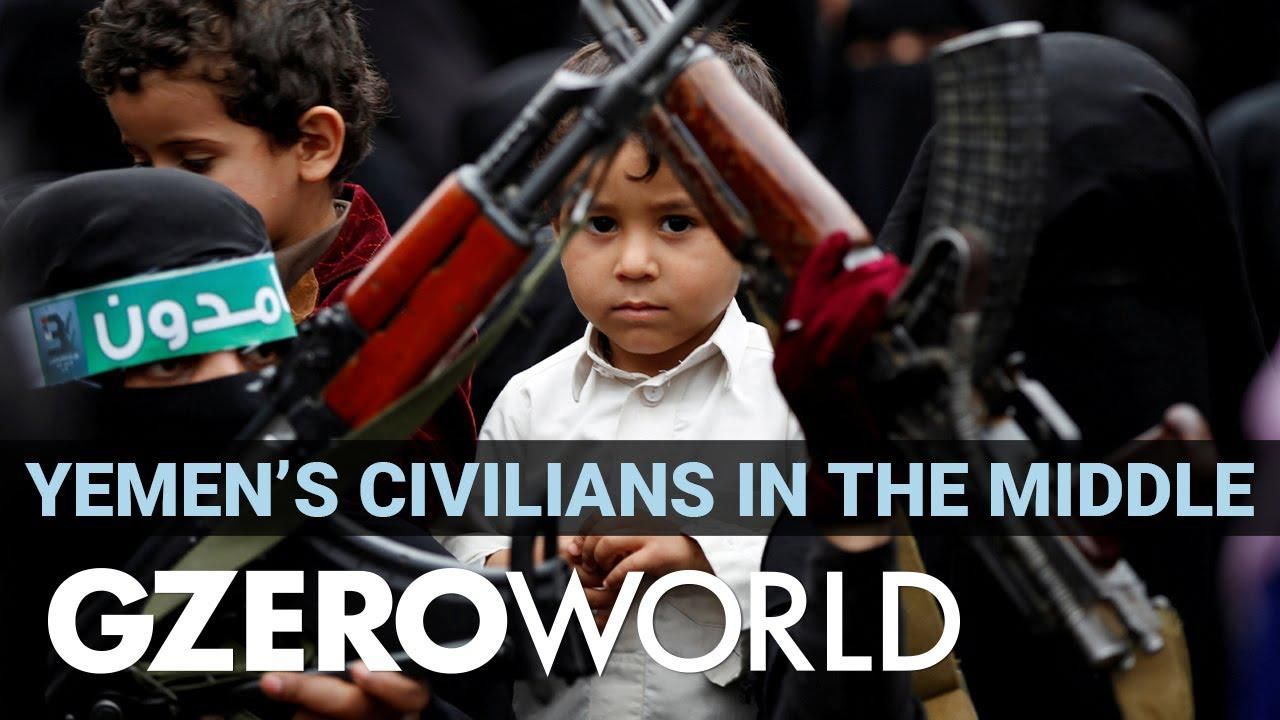GZERO World Clips
The proxy war (still) raging in Yemen

The Proxy War (Still) Raging in Yemen | GZERO World

For seven years, regional powers Iran and Saudi Arabia have fought each other... in Yemen. As usual, civilians are paying the price.
The Iranians back the Houthi rebels, who control Sanaa, while a Saudi-led coalition supports the internationally recognized government in Aden.
Unfortunately, neither side seems willing to back down, as recent fighting in Marib suggests. There's no road to peace.
The Biden administration has changed tack on Yemen by delisting the Houthis as a terrorist organization and no longer selling weapons to Riyadh — which UN Coordinator David Gressly sees as a productive step in the conflict.
But that’s not enough.
Watch the GZERO World episode: Caught in the crossfire: Yemen’s forgotten war
Sports inspire greatness, determination, and resilience — both on and off the field. Bank of America is proud to celebrate the achievements of and uplift communities through the power of sports. Learn more about how Bank of America supports athletes in life and in the game.
More than a week after Hondurans cast their ballots in a presidential election, the country is still stuck in a potentially-dangerous post-election fog.